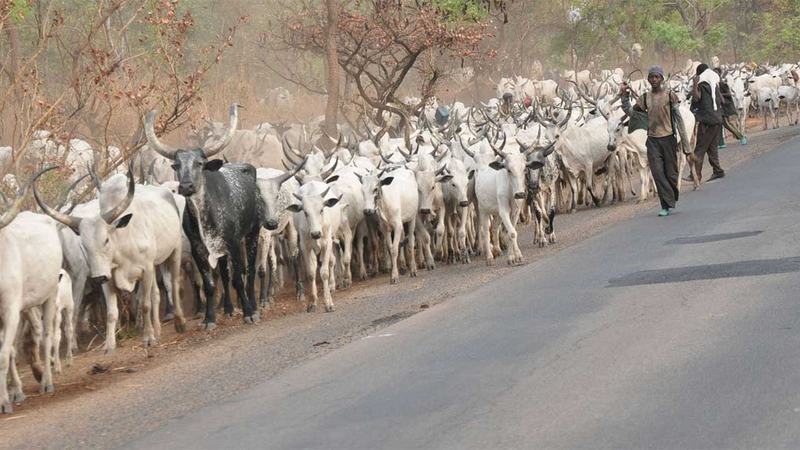Many have attributed the clashes between farmers and herders in Nigeria to the lackadaisical attitude of the present government. They are wrong! History has proven that it is a crisis that has existed for a while – with varying degrees of casualties.

The history of the farmers and herdsmen crisis in Benue, for example, could be traced to within 1980 and 1984, where 80 cattle owned by the herdsmen were killed. Other parts of the country have also witnessed conflicts between the herdsmen and farmers prior to these times.
In 2002, the conflicts between herdsmen and farmers in Northern Nigeria resulted into the loss of 96 herders and 53,991 cattle. From 2010 to 2013, Fulani herdsmen killed 80 people; in 2014, the figures had risen to 1229 people. Those figures brought the Fulani herdsmen crisis into limelight; subsequently, they were rated as the fourth deadliest terrorist group in the world.
In March 2016, over 40 farmers were killed in Enugu State. More recently, on May 30, 2021, herdsmen killed no fewer than 30 people in Ebonyi State. The Southwestern states in Nigeria are no exception; they have also experienced their own share of the crisis.
Many reasons have been suggested as the problem of such conflicts. The widespread crisis is linked to poverty, migration, inequality and even religion. However, the most common is the perceived belief that the president’s disposition towards the Fulani ethnic group has led to such conflicts.
Perhaps, rightly so the clashes have become too frequent. The herders and farmers clash have almost become daily news. This could be due to lack of an integrated approach to solve such crises. Solutions have also been suggested: some include deployment of electronic chips to track cattle, establishment of new grazing routes, ranching etc. These suggestions are good. Are they enough to solve the conflicts – No!
The reason is this: the Fulani herdsmen are faced with a challenge they are not capable of solving – climate change. It is not a coincidence that as the world is increasingly getting affected by climate change, the farmers- herders’ conflict is also increasing.
The Sahel region is a semi-arid region with little grasses and sandy soil covered with scattered rock. It is characterised with low-growing grass and tall, herbaceous perennials. Frequent droughts, depleted soils, increased population and increased use of land (overgrazing and over farming) have led the region into the brink of desertification. These situations have put herders at disadvantage.
The Fulani herders or (pastoralists as named in some other parts of the world) are people whose primary occupation is raising livestock. They need lands for grazing; hence they are migratory in nature. The reason is to maximise the availability of food resources for the cattle and reduce excessive grazing.
Historically, the Fulani herdsmen has grazed the Sahel region of West Africa, however, as the environmental crisis began, they forayed into the tropical rainforest. This has been the major reason to the escalation of the Fulani herdsmen and farmers crisis in Nigeria.
Solving the root cause of a problem eliminates the likelihood of its occurrence in the future. Population of both humans and cattle is poised to increase in years to come. Fabiyi and Otunuga in 2016 postulated that the population of cattle will increase to 60 million from 25 million. Moreover, the growth rate of human population in Nigeria according to National Population Commission is 3.2%.
It is pertinent to ensure adequate measures that integrates both short term and long-term solutions is used to solve the herders-farmers conflict in Nigeria. Proposed solutions such as establishing new grazing routes and using chips to monitor cattle are short term solutions. There are no guarantees that such solutions will be accepted by the ethnic groups and if they do– they are temporary.
A long-term solution will be to engage in an ecosystem restoration approach. This approach will be aimed at solving the desertification challenge affecting the Sahel region. An ecosystem restoration playbook will help reverse land degradation and restore ecosystem services in the Sahel region. This will help reduce the migration of herdsmen to the tropical regions and subsequently reduce conflicts in the long term.
A lot of issues impact and escalate conflicts: it could be ethical, economic, religious, political or cultural. However, the underlying factor for the farmers and herders’ conflict is environmental degradation/ climate change. Till it is solved, there is no end in sight to the farmers and herders’ crisis.
By Oluwatosin Komolafe, PhD (Ecologist, Environmental Scientist, and Waste Management Expert)
